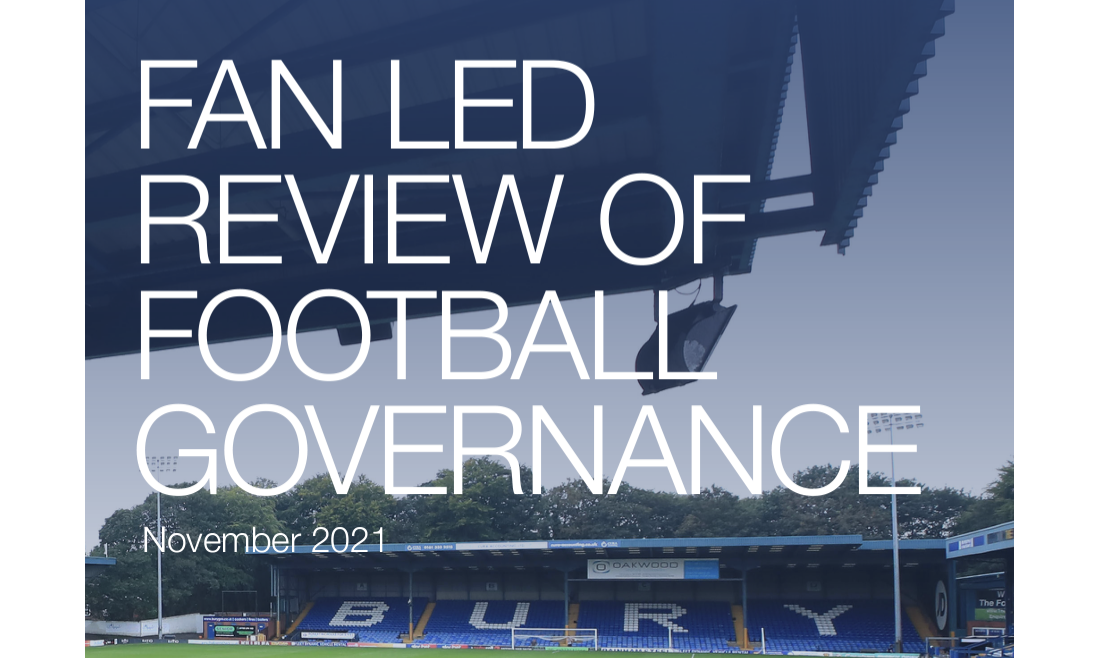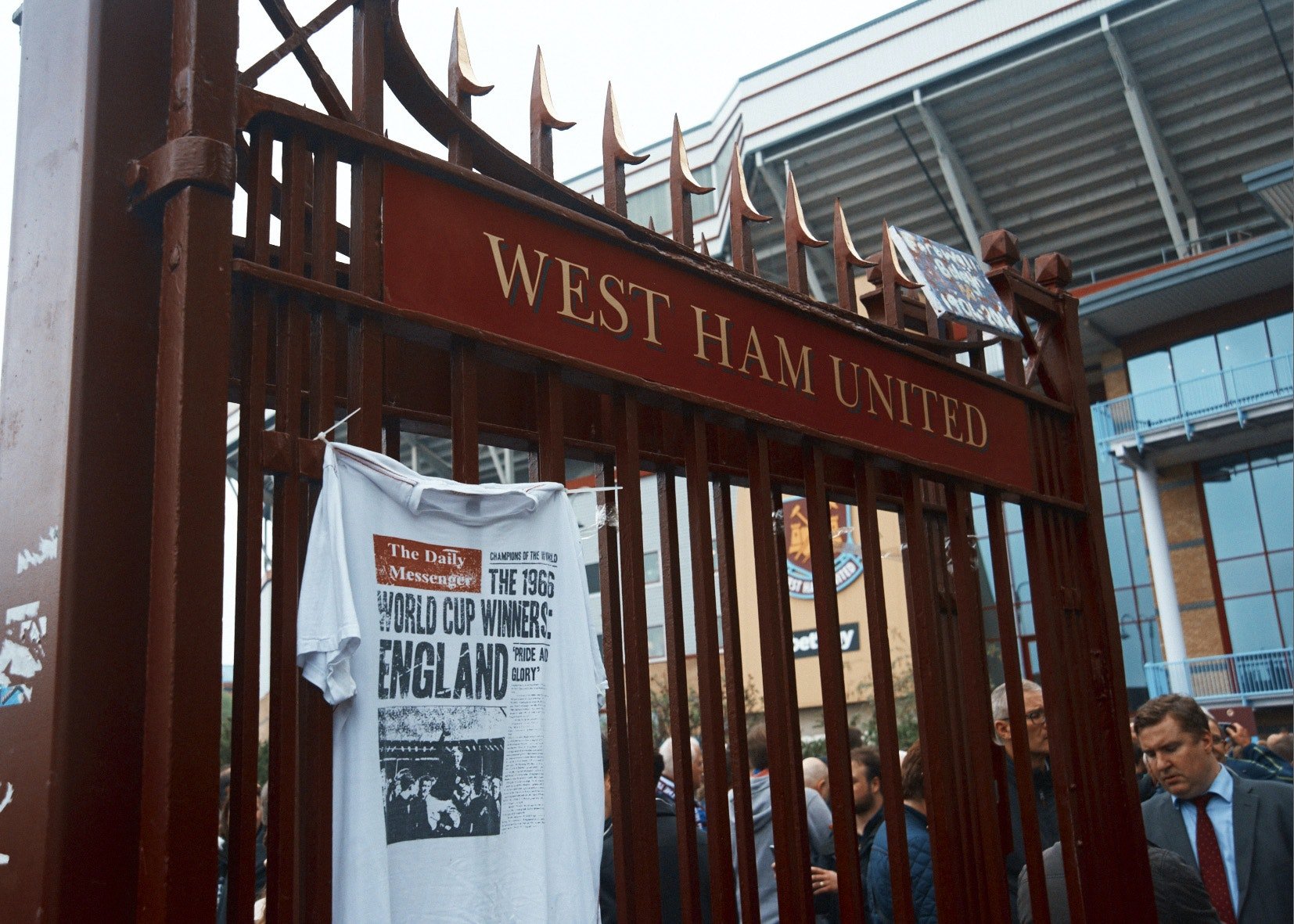
What is it?
The Fan Led Review of Football Governance was the result of three points of crisis in our national game. The first was the collapse of Bury FC. A club founded in 1885, which had existed through countless economic cycles, several wars and 26 different Prime Ministers ceased to exist in 2018-19 with a devastating impact on the local economy and leaving behind a devastated fan base and community. This led to the commitment in the 2019 Conservative Party manifesto to ‘set up a fan-led review of football governance…’.
The next crisis was COVID-19. For the first time since the Second World War, club football was brought to a complete halt, threatening the continued existence of many professional football clubs. The pandemic and its effects laid bare the fragile nature of the finances of many clubs, as well as the structural challenges of the existing domestic football authorities.
The final crisis was the attempt to set up a European Super League in April 2021. This new competition would have involved six English clubs as founding members, protected from relegation. It was a threat to the entire English football pyramid and led to an unprecedented outpouring of protests from fans, commentators, clubs and government. As a result, the Secretary of State for Digital, Culture, Media and Sport (DCMS) announced to Parliament on 19 April 2021:
“…it’s clearer than ever that we need a proper examination of the long-term future of football. To many fans in this country, the game is now almost unrecognisable from a few decades ago. Season after season, year after year, football fans demonstrate unwavering loyalty and passion by sticking by their clubs. But their loyalty is being abused by a small number of individuals who wield an incredible amount of power and influence.
If the past year has taught us anything, it’s that football is nothing without its fans. These owners should remember that they are only temporary custodians of their clubs, and they forget fans at their peril”.
The terms of reference for Fan Led Review of Football Governance were issued on 22 April 2021. These charged the Review with the aim to ‘explore ways of improving the governance, ownership and financial sustainability of clubs in English football, building on the strengths of the football pyramid.’
Our Presentation to the Fan-led Review
WHUISA was approached by the FSA and asked to be one of the Premier League groups to present evidence to Tracey Crouch and her panel towards the fan-led review. The Premier League representatives gave their evidence on the 14th June.
WHUISA was asked to present evidence around the value of a ‘golden share’ in ensuring how the cultural heritage and history of a club, in our case West Ham United, would be protected.
Our Chair, Sue Watson, spoke about the history of a football club and how the cultural heritage develops from that, leading into the impact of this on supporters of all generations. She described how a culture grows out of the shared stories, the memories, the rituals, songs, and the home stadium itself. However, she emphasized that the most important aspect of the cultural heritage are the supporters – while owners and shareholders come and go, supporter loyalty remains consistent.
We argued for the introduction of a golden share as it would ensure that the best aspects of a well-run business become part of how the Club relates to its supporters. Decisions arising from business plans, whether stadium moves, training facilities and badges, would be made with those who are the most emotionally invested in their clubs.
Finally, Sue gave a passionate and emotive description of the impact on her that followed the move from the Boleyn Ground to the London Stadium. From a deeply personal perspective, she described how moving to the new ground has decimated the culture of West Ham fans who must pick up the pieces and attempt to fit new memories into that heritage."
You can listen to Sue’s presentation (6 1/2 minutes)
The Published Review
Key recommendations of the Review include:
Ø The Government should create a new Independent Regulator for English Football (IREF) established by an Act of Parliament and based upon specialist business regulation adapted to the football industry.
Ø IREF should operate a licensing system for professional men’s football.
Ø To ensure the financial sustainability of the professional game, IREF should oversee financial regulation in football. This should be based upon prudential regulation in other industries, recognizing that football is obviously sport but also now big business.
Ø New owners’ and directors’ tests for clubs should be established by IREF and these will replace the three existing tests to ensure that only good custodians and qualified directors can run these vitally important community and cultural assets.
Ø As every club’s most important stakeholder, supporters should be properly consulted by their clubs in taking key decisions by means of a Shadow Board. Effective supporter engagement should be a license condition and overseen by IREF. At West Ham, the Independent Supporters’ Committee – of which WHUST is a member – could develop into the Shadow Board envisaged in the Fan Led Review.
Ø There should be additional protections for key items of club heritage through a “Golden Share” requiring supporter consent and overseen by IREF. Supporters’ Trusts like WHUST will hold the Golden Share. Key items of club heritage would include the location of the stadium, club badge, club colours and the club name.

Protecting Heritage Assets
The Report recommends:
Football clubs are a vital part of their local communities, in recognition of this there should be additional protection for key items of club heritage.
It should be a licence condition that all licenced clubs should include within their articles of association a Golden Share requiring democratic consent to proposed actions relating to identified heritage items. Each Golden Share right should have circumstances in which it will not apply.
The consent of the holder of the Golden Share should be required for the sale of the club stadium, relocation outside of the local area which is not a temporary part of a redevelopment, joining a new competition that is not approved by FIFA, UEFA and the FA and/or leaving a competition in which it currently plays, club badge, first team home colours, and club playing name.
The proposed key general characteristics of this Golden Share are:
It shall not have any financial value or be capable of being transferred or otherwise disposed of other than to an alternative supporters body that also meets the required criteria
As it is not intended to convey ownership rights, it shall carry no rights to receive notice of or attend at a general meeting of the club or any rights to vote on any ordinary or special company resolution
The rights attaching to the special share shall not be capable of variation other than with the consent in writing of the holder of the share and the independent regulator


